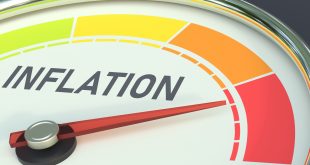Surging American demand draws investment as well as interest and attention of investors from overseas while at the same time supply chains working to keep pace and driving up prices
As the cost of groceries, clothing and electronics have gone up in the America, prices in Japan have stayed low. In Tokyo, steady prices can be a sign of a slow-growing economy.
A booming US economy is moving up around the world, leaving global supply chains struggling to keep up and pushing up prices.
The force of the American expansion is also inducing overseas companies to invest in the US, betting that the growth is still accelerating and will outpace other major economies.
The Omicron variant has driven Covid-19 cases to record highs in the past few weeks in cities across America, upending holiday travel plans and driving workers out of offices and shoppers out of stores.
But while some aspects of the economy are registering a hit, showing a drop in consumer demand or shutting down due to a shortage of workers, others are shrugging off Omicron as barely more than a blip on the radar.
The mixed picture suggests that while the virus will almost certainly exert a drag on economic growth in the near future, its impact will not last for long.
UK private sector growth has slowed to its weakest pace since lockdowns were lifted in the spring, with service sector firms hit by uncertainty over Omicron. Growth is expected to keep slowing in the next few months.
UK car production slumped again last month, with fewer cars built than in any November since 1984 due to supply chain shortages. Output of engines also fell.
Dining out numbers have tumbled, as people avoid restaurants and pubs for fear of catching Covid, as infections hit record levels. Spending at Pret branches has also dropped, as more workers stay at home.
UK loses appetite for pre-Christmas dining out because of Omicron
British consumers have been warned that energy bills could rise by 50% next April, intensifying the cost of living crisis.

 Noor Trends News, Technical Analysis, Educational Tools and Recommendations
Noor Trends News, Technical Analysis, Educational Tools and Recommendations




